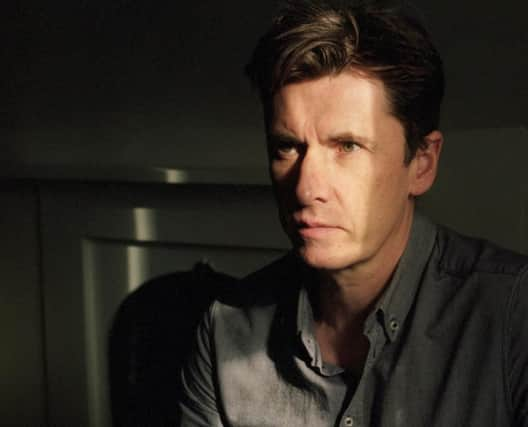Bernard Butler on the toxic fantasy and tough reality of a life in music


Peter Ormerod speaks to guitar great Bernard Butler as part of JPIMedia's The Show Must Go On campaign, supporting local arts venues across the country
He’s spent his remarkable career defending beauty, integrity, craft and the virtues of hard work.
Advertisement
Hide AdAdvertisement
Hide AdSo it’s no surprise to learn that Bernard Butler is such a fervent supporter of grassroots music venues.To him, they’re more than a workplace for musicians, not that that’s a trivial consideration. No, they are an essential part of all our lives, whether we realise it or not.
“People’s communities and lives are duller without small music venues around their towns and cities. They curate culture and they nurture culture as it goes along. That’s so important and so overlooked.
“Culture is curated by art and always has been. It affects politics and economics and the way we dress and how we look and what we listen to and the way we talk and the things we talk about and the things we write about. With all of these things, their moment of creation is in venues in your towns. And it always has been like this - from the Beatles to punk rock through to every other movement, they’ve had an effect on the country we live in.”
There is much to say about Bernard Butler. But to his credit, he doesn’t want to say much of it himself. There are musicians with a tenth of Butler’s talent or achievements who happily ramble on about their past.
Advertisement
Hide AdAdvertisement
Hide AdA quick recap on Butler’s own past, if only for the record: Suede’s guitarist and musical driving force until 1994; co-creator with David McAlmont of one of that decade’s greatest pop singles, the unsurpassably euphoric Yes; a solo artist hailed by Creation Records boss Alan McGee as “the Neil Young of the ’90s”; and years spent producing and collaborating with everyone from Bert Jansch to The Libertines, to Tricky to Sharleen Spiteri, to Pet Shop Boys to Duffy, contributing to her breakthrough 2008 album Rockferry.
But we are not here to dwell on the past. “If I sit around talking about the good old days of playing venues years ago, it doesn’t make any difference to somebody who’s now 22, trying to play in a venue like the Deaf Institute in Manchester,” says Butler, who believes the crisis facing music venues goes to the heart of many current problems across society.
Without venues, says Butler, “people don’t have a space to express themselves. And I think you can get dragged along with the populist argument, which is what’s happening in politics, where you can only look at a big argument and think ‘OK I don’t really agree with this, but I’ll just go along with it because I’m roughly under that umbrella’.
“Then there’s no response. Without one, people are left out of having a response that’s seen as valid, as crucial, as not only something that can nourish their lives and make them feel OK to be themselves, identify with people, identify with feelings, with lifestyles, with the way they live their life.
Advertisement
Hide AdAdvertisement
Hide Ad“With music, the amazing thing about it is you stop talking and you listen. You just experience. It’s somewhere where it’s loud enough that you can’t talk to anybody. You just have to be absorbed by it and absorb the feeling it gives you. That’s something that’s quite indefinable. You’re lost in your own space. And that’s very important as well. It’s very much about the outsider and the individual that doesn’t have a big loud voice and the capacity to enforce their character in this kind of overwhelming way.
“It’s very difficult to do that in modern society. It’s having that space to be silent, to be solitary, and experience something completely beautiful on your own and have your own emotions about it. You need that space to do that. In every town everywhere, there’s music venues. And they’re all under threat.”
And the proliferation of music available free of charge just adds to the problem, according to Butler.“One of the things about lockdown is that there have been so many people doing shows for free online. And I really fear the situation that, coming out, people are going to expect people to just perform for free as well. People are so used to getting recordings for free.